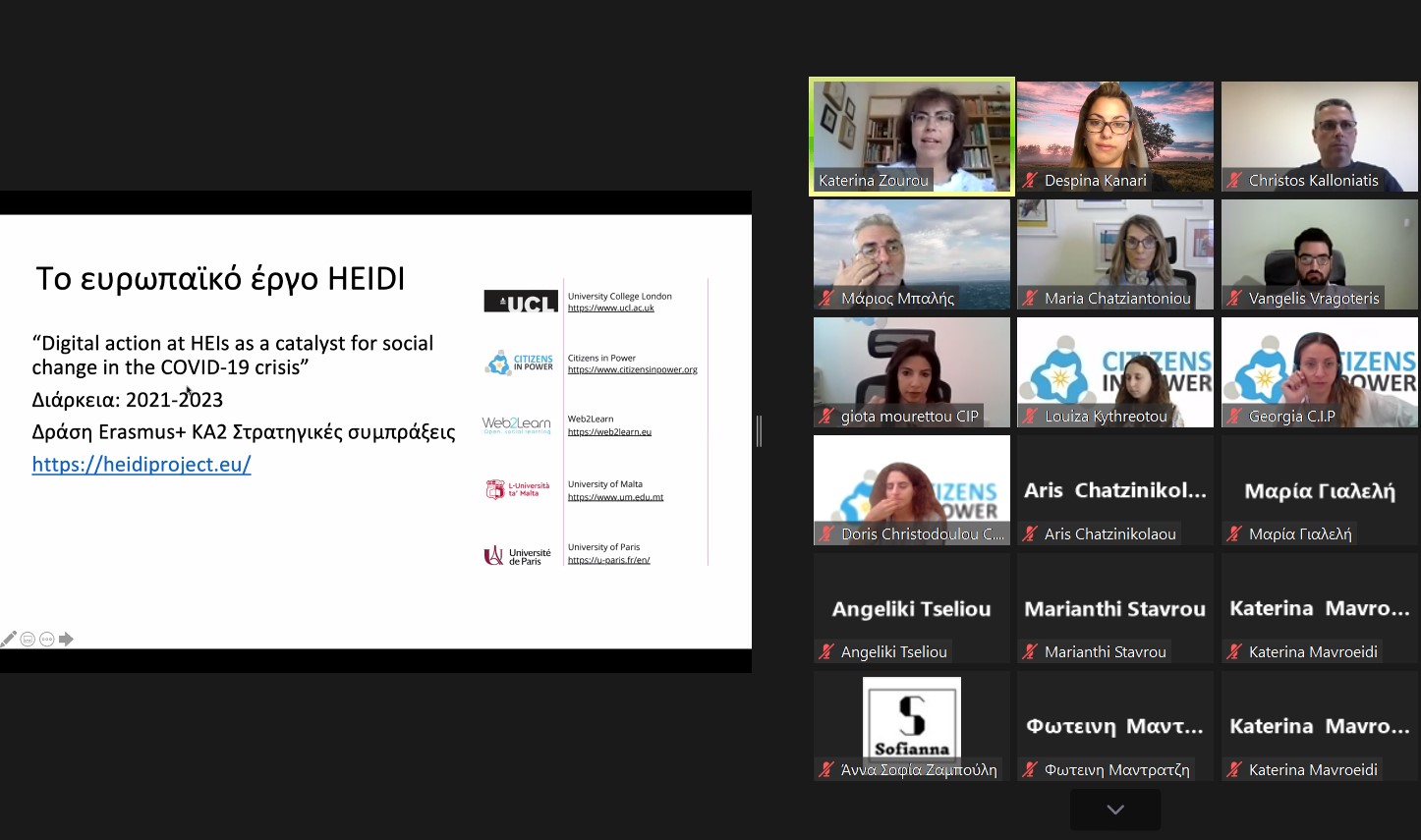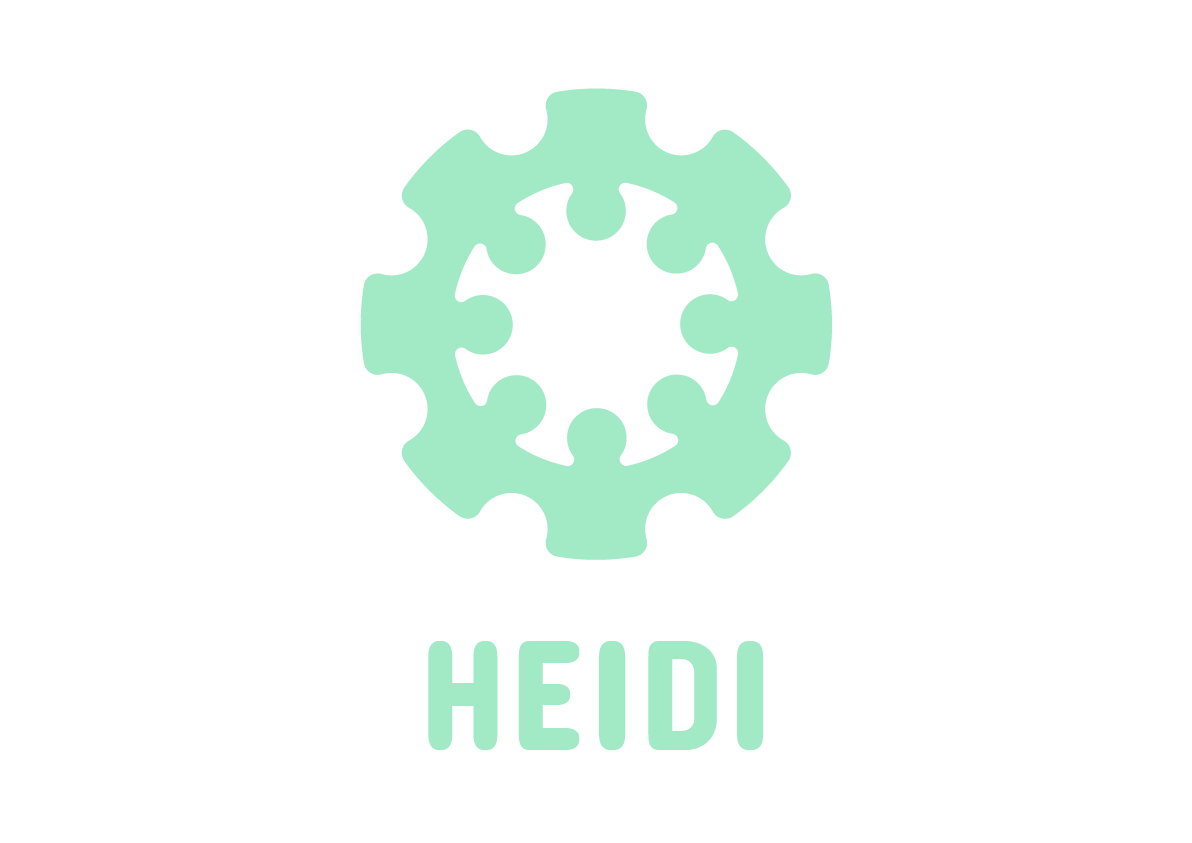Open webinars on Digital Action

Two webinars were held in Greece (on Oct 6th, 2021) and Cyprus (on Nov 8th, 2021), highlighting relevant examples of DA, followed by Q&As from the panel and guests. You can read more about the event in Cyprus here.
Throughout the webinars, it was reported that engagement affects motivation to participate in CS. While all citizens are invited to participate, there is a section of society which is demotivated to participate due to previous marginalised experiences and accessibility.
Groups were aware of DA, but they suggested that DA needs to be locally relevant, and sometimes, gathering data can be risky. This raises ethical issues concerning age and exposure to dangerous situations, and a lack of trust between HEIs and society can be a barrier to DA. Trust can be built by nurturing an appreciation for research and gathering data in younger children which has the potential to create an environment in which DA is better understood.
HEIs can be seen as catalysts of social change because of the reach they have, but this is dependent on social interaction. It was suggested that students could be a bridge between HEIs and society, allowing them to produce information that is understandable to the public.
During the webinars, it was noted that HEIs can raise awareness of DA by improving communication, highlighting the moral value of DA for the wider community in terms of environmental action or employment opportunities, encouraging the students to get involved with promoting projects, and building trusted relationships with marginalised groups such as refugees to encourage inclusivity.
You can read the full report on our roundtables and webinars here.

